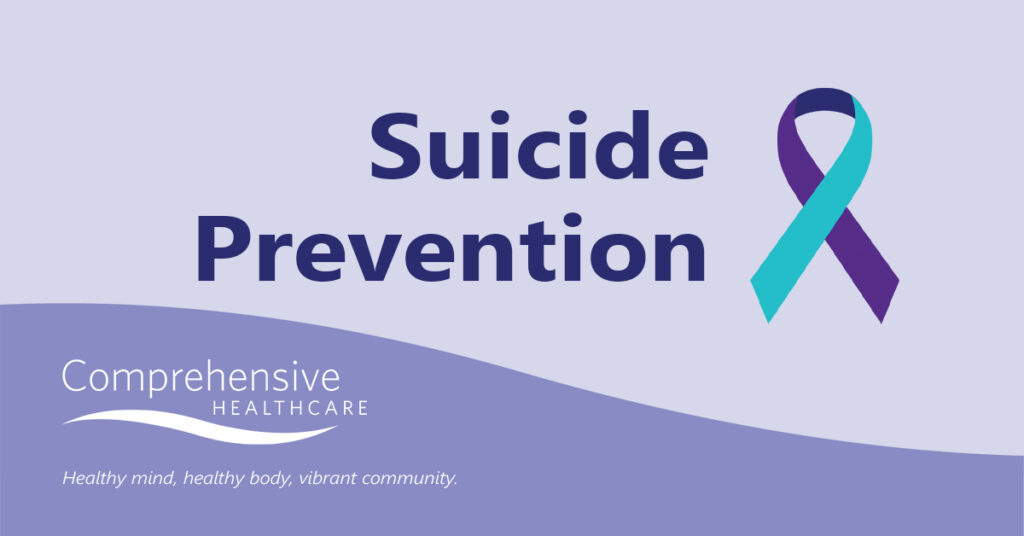By: Jodi Daly, Ph.D., President and CEO
September is National Suicide Prevention Month, but it is important to call attention to this serious public health concern all year long, and show-case efforts to reduce the risk of suicide. According to the CDC, one in four adults between 18 and 24 have considered suicide in the past month. Every year in the United States, more than 47,000 people die by suicide, ranking suicide as the tenth leading cause of death. Suicide is the second leading cause of death for people between the ages of 10 and 34, and the fourth leading cause of death for those between the ages of 35 and 54. A recent survey by the American Foundation for Suicide Prevention of over 2,000 U.S. adults found that 81% of those surveyed believe that as a result of COVID-19, it is now more important than ever to make suicide prevention a national priority.
Washington States suicide rates have been rising and continue to rise across the state. Currently Washington State ranks death by suicide as the eighth leading cause of death. Each and every one of these deaths by suicide leaves at least six or more individuals deeply impacted. Each of these “suicide survivors” have lost someone they care deeply about and struggle to understand why it happened.
These numbers are sobering statistics, but what really resonate with me are the personal stories I have been seeing in the news about individuals in our community who have lost a loved one. Because, not only am I a trained behavioral health professional and clinician by trade, I lost a brother to suicide.
I compel each and every member of our communities to attend to your wellness and self-care, learn about suicide ideation and prevention, and become empowered to take action as these are essential pillars of suicide prevention.
Attend to your self-care.
We all know that eating well, moving our bodies, and taking up a hobby are all great ways to maintain our mental and physical health. It is also really easy for these things to take a back seat while we adjust to the “new normal” during the pandemic, but it is extremely important to incorporate a wellness plan into our daily lives. One of the most effective ways we can combat behavioral health challenges is by shifting negative or hopeless thoughts toward altruism and optimism. For instance, think of things you are grateful for, pause to take deep breaths, meditate, seek out beautiful objects or views that are around you – there are many! The more you practice these exercises, the quicker they will become habit. Reframe challenges as opportunities to grow and to develop new skills. Exercise empathy, and challenge negative self-talk.
Lead conversations with compassion.
Send a note to the friend you haven’t heard from in a while. Support someone and show the people around you compassion. Familiarize yourself with the symptoms of depression and suicide ideation.
Feeling depressed is not always expressed by crying, but also by being quieter than usual, less engaged, acting out of character, eating more, or eating less. The best and most effective thing we can do is create a space where it is safe for individuals to feel emotions and to listen.
Fight stigma, shame and isolation.
There is still a powerful stigma attached to mental illness and suicide. Therefore, community and families often don’t know what to say or how to ask for what they need as it relates to support and resources. Ways to fight stigma include: learning to talk openly about mental health, being conscious of language, encouraging equity between physical health care and mental health care, showing compassion for those that suffer behavioral health challenges and to choose empowerment over shame.
See a behavioral health professional or call the crisis line.
Comprehensive Healthcare is currently accepting new clients, and there are many behavioral health professionals in the community ready and able to help you work through what you are experiencing. It is also important to remember to call our crisis line at (800) 572-8122. Our crisis services are free and available 24/7. I also suggest saving that number in your phone!
Lastly, to someone who is struggling right now, please know that you are not alone, and that it is possible to move past the pain that you are feeling and to once again feel joy. That is the beauty of behavioral health recovery – there is hope. Courage is critical, but we, your community, your family, your neighbor, and all of us at Comprehensive Healthcare urge you to be cognizant of your emotions and to reach out for support.
We stand with you in this challenging time, and together we will create resilient, more vibrant communities.
Resources:



